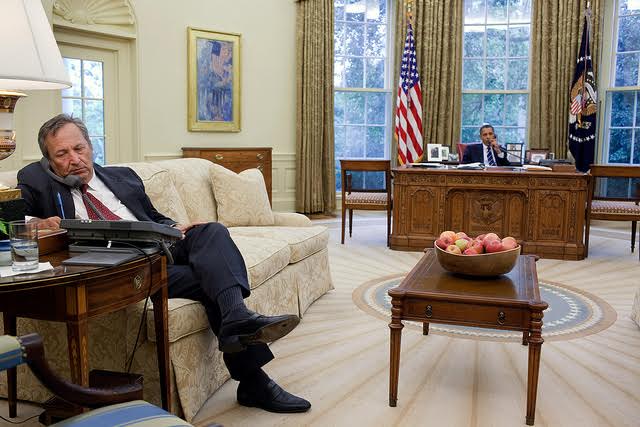What may be most striking about the recent trove of data on international tax haven use that has come to be known as the “Panama Papers” is just how few of the revelations contained therein are of the supremely illicit variety. One might expect more visions of money laundering for drug cartels and other international criminal syndicates to appear, but, the reality is rather more bloodless. Some of the juicier types of material do appear there, of course, but in the main the corruption found in the documents is of a more mundane variety. That isn’t to say it’s legal, though some of it is at least within the strict letter of the law (that all-important distinction between the legal “avoidance” and the illegal “evasion”), but rather that it it’s the grinding, difficult stuff of crafty legal fictions and opaque accounts, mostly designed to evade the tax man rather than hide some broader illegal activity.
Canadians aren’t wrong to be upset at the fact that an estimated $40 billion in assets from Canada was parked off-shore in the 2015 fiscal year, but the battle for tax compliance is likely to be one of attrition. Though still imperfect, the tools that the international community has at its disposal through agencies such as INTERPOL have largely been successful in producing break-ups of openly illegal tax evasion rings. The problem, then, is that a similar kind of international cooperation is still lacking on that lower level of tax evasion, for reasons of both self-interest and lack of resources or legal tools. Getting serious about the widespread anger over tax havens sparked by the Papers will require more cooperation, at a time when many political trends seem to be blowing in the opposite direction.
This is not to say that individual countries do not have legal methods to address some of the problem on their own. It is certainly notable that United States was largely not among the countries whose politicians and captains of industry were outed in the Panama Papers. The suggested reasons for this vary, ranging from the effectiveness of the 2010 Foreign Account Tax Compliance Act (FATCA), to the presence of a bilateral tax information exchange agreement between the United States and Panama (which Panama notably did not have with the other nations whose citizens were more heavily implicated). Of course, it may also be the case that American tax evasion and avoidance is occurring through on-shore methods, or through other jurisdictions such as the Cayman Islands. Nevertheless, the relative success of the presence of these legal agreements should be an example to other nations seeking similar results.
Canada’s 2016 budget provides for an increase in operational funding for the Canada Revenue agency with the explicit goal of facilitating tax compliance, along with setting an aspirational goal of greater multilateral tax cooperation. As well, the recent $1.1 million fining of a bank by the Financial Transactions and Reports Analysis Centre of Canada (FINTRAC), the first of its kind in Canada, has been see as an “on notice” maneuver by the government. This may be why Canada also ranks relatively low on the illict activities seen in these leaked documents. However, despite the agreement of all 34 OECD nations, along with some others, to adopt the Common Reporting Standard agreement (sometimes called a “GATCA”, or “global FATCA”) on tax information exchange in 2014, the most commonly used “haven” countries, Belize and Saint Kitts, for instance, remain beyond its purview. In the wake of backlash from European Union members states subsequent to the Papers revelations, Panama itself has agreed to adopt these same standards, which is a welcome sign.
There is still much to do in reining in tax avoidance and evasion, however, much of it is complicated by increasing globalization. As reports from the United Nations have identified, the line between legitimate business activity in lower-tax jurisdictions and deliberate avoidance of tax is an increasingly blurry one, especially in the absence of an IMF or NATO-like international body facilitating cooperation and compliance on tax. The European Union has attempted to perform something of this role for its member and associate states in recent years. In particular, its negotiation of tax transparency agreements with Monaco and Andorra will at least make those looking to skip their tax bill have to look further afield. The OECD has also stepped up with some initiatives to facilitate greater knowledge transfer in terms of tax compliance to developing nations, who tend to lose out the most from missing tax revenues.
What these measures point to, small-bore though they may be, is that the future of ensuring tax base integrity will be in greater cross-jurisdictional cooperation. Increasing moves away from international institutions, from the United Kingdom to Poland, may be driven in part by anxieties over the negative consequences of globalization that the Panama Papers seem to embody. However, paradoxically, moving away from these institutions will only make increased evasion and avoidance more likely as countries find it harder to cooperate with each other.
Though tax evasion may seem like a trivial matter when compared to other threats in the international arena, one should bear in mind that much of the disorder and underdevelopment seen in nations from Greece to Pakistan can trace some of its origins to mass refusal to pay up from elites and ordinary citizens alike. Of course, most countries are nowhere near this precipice, but the recent revelation can and should be a teachable moment for the importance of mutually designing effective tax systems that facilitate growth while cracking down on illicit behavior.
Disclaimer: Any views or opinions expressed in articles are solely those of the authors and do not necessarily represent the views of the NATO Association of Canada.




